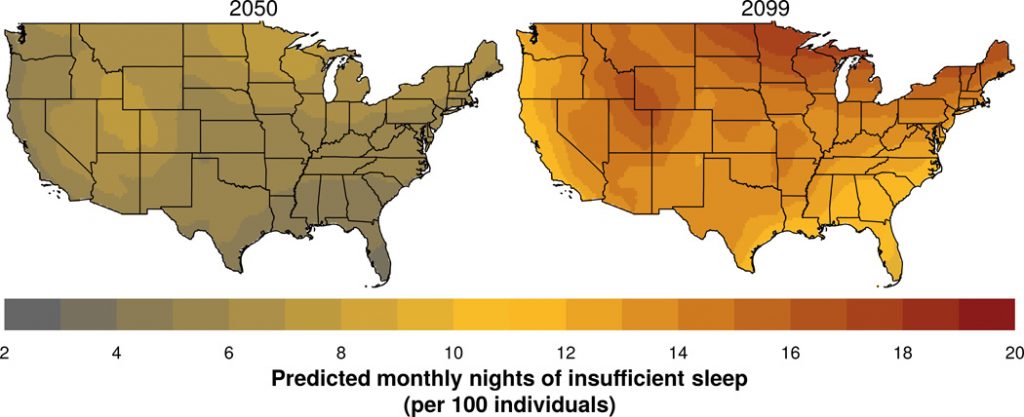Climate change is keeping Americans awake, literally
Climate change is keeping Americans awake, literally. The changes in temperature make it much harder to get to sleep and get a good night’s rest.
A new study into how temperature changes sleep patterns has been published in the Science Magazine and researchers argue that due to climate change, Americans are having more trouble going to sleep and having a good night’s rest.
Using data from 765,000 U.S. survey respondents from 2002 to 2011, coupled with nighttime temperature data, the scientists showed that as nighttime temperatures grew, people reported having less sleep. And things were worse during the summer with low-income respondents and elderly suffering the most from insufficient sleep.
Looking at the historic data and at climate change projections, the researchers found that every location in the United States may experience an increased incidence of insufficient sleep due to nighttime warming induced by future global warming.
But some parts of the country will be more affected than others. Areas of the western and northern United States are likely to have the most significant changes in nighttime temperatures and, as a result, may see the greatest increase in climate change–induced nights of insufficient sleep.

Normal sleep-wake cycles are governed by circadian rhythms, a biological clock that tells us when to be awake and when to sleep. And thermoregulation is a critical determinant of both falling asleep and staying asleep. When we prepare for bed, the body goes through changes driving down our core temperature.
Once core body temperature drops to produce sleep onset, it remains low throughout the night and rises again shortly before awakening. Ambient changes can disturb this normal circle, causing sleep problems, scientists say.
In the short term, a lack of adequate sleep can affect judgment, mood, ability to learn and retain information, and may increase the risk of serious accidents and injury. In the long term, chronic sleep deprivation may lead to a host of health problems including obesity, diabetes, cardiovascular disease, and even early mortality, according to recent studies.